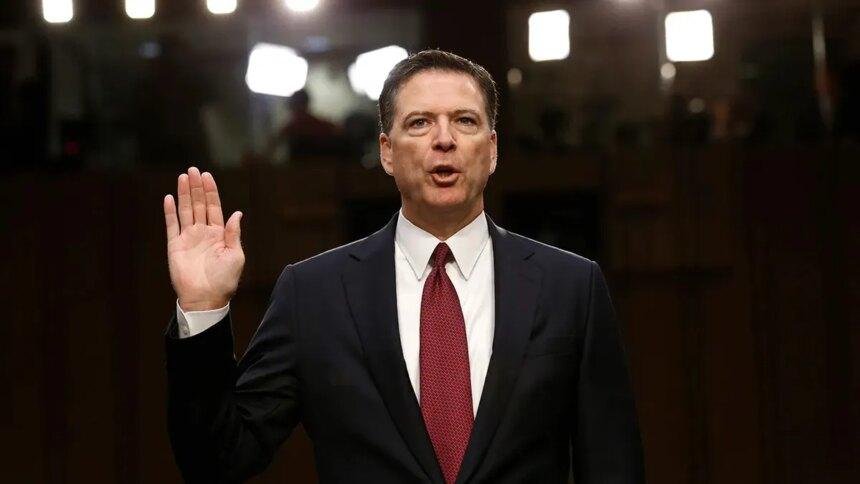House Oversight Committee Withdraws Subpoena for James Comey in Epstein Investigation
In a significant development regarding the ongoing investigation into Jeffrey Epstein’s connections, the House Oversight Committee has officially withdrawn its subpoena for former FBI Director James Comey. This decision follows Comey’s assertion that he possesses no relevant information pertaining to the committee’s inquiry into Epstein, a notorious figure whose criminal activities have sparked widespread public interest and concern.
Comey’s Response to the Subpoena
On October 1, Comey communicated his position in a letter addressed to Committee Chair James Comer, a Republican from Kentucky. In this correspondence, Comey stated unequivocally that he had no “knowledge” or “information relevant to the Committee’s investigation” into Epstein, who was arrested in 2019 on federal sex trafficking charges before his controversial death in jail. Comey emphasized that his testimony would not contribute meaningfully to the committee’s efforts, suggesting that it would merely “unproductively consume the Committee’s scarce time and resources.”
The former FBI director’s tenure at the bureau, which spanned from 2013 to 2017, is now under scrutiny as House Republicans seek to uncover any potential government ties Epstein may have had dating back to the 1990s. Comey served as deputy attorney general from 2003 to 2005, a period that also falls within the committee’s investigative timeline.
The Context of Epstein’s Investigation
Jeffrey Epstein’s case has long been a focal point of public and political discourse, particularly following his arrest in July 2019. Epstein was charged with operating a sex trafficking ring that exploited underage girls. His subsequent death in a Manhattan jail cell, ruled a suicide, has led to numerous conspiracy theories and questions about the circumstances surrounding his demise. The investigation into Epstein’s connections has been complicated by the high-profile individuals associated with him, including politicians, celebrities, and business leaders.
The House Oversight Committee’s inquiry aims to shed light on these connections, with Comer issuing a series of subpoenas in August to various figures, including Comey, former President Bill Clinton, and former Secretary of State Hillary Clinton. The committee’s efforts reflect a broader Republican initiative to investigate perceived failures in the handling of Epstein’s case by previous administrations.
Comey’s Letter and Its Implications
Comey’s letter to the committee was submitted under penalty of law, meaning that any false statements could lead to federal charges. This legal weight likely contributed to Comer’s decision to accept Comey’s response and withdraw the subpoena. In his letter, Comey stated, “At no time during my service at the Department of Justice or the FBI do I recall any information or conversations that related to Jeffrey Epstein or Ghislaine Maxwell,” further distancing himself from the investigation.
The withdrawal of Comey’s subpoena is not an isolated incident. Other high-profile figures, including former Attorney General Loretta Lynch and former FBI Director Robert Mueller, have also received subpoenas but subsequently denied any knowledge of Epstein, leading to similar withdrawals.
The Broader Political Landscape
The committee’s investigation into Epstein has become a contentious issue within the current political climate. Partisan tensions are rising as Republicans and Democrats clash over the handling of the Epstein case. While some GOP leaders, including former President Donald Trump and House Speaker Mike Johnson, advocate for the continuation of the Oversight inquiry, critics argue that the investigation is being used as a political tool rather than a genuine effort to seek justice for Epstein’s victims.
The release of thousands of pages of subpoenaed documents from the Justice Department and Epstein’s estate has fueled accusations that the GOP is selectively releasing information to protect certain individuals. In contrast, several lawmakers are pushing for legislation to declassify all government files related to Epstein and Maxwell, a move that has garnered support from multiple victims of Epstein’s crimes.
Conclusion
The withdrawal of the subpoena for James Comey marks a pivotal moment in the House Oversight Committee’s investigation into Jeffrey Epstein’s extensive network. As the inquiry continues, the political ramifications and public interest surrounding Epstein’s case remain significant. The complexities of the investigation, coupled with the high-profile nature of those involved, ensure that this issue will remain in the spotlight as lawmakers navigate the murky waters of accountability and justice. The ongoing discourse surrounding Epstein’s connections and the actions of government officials will likely shape the narrative for years to come.










